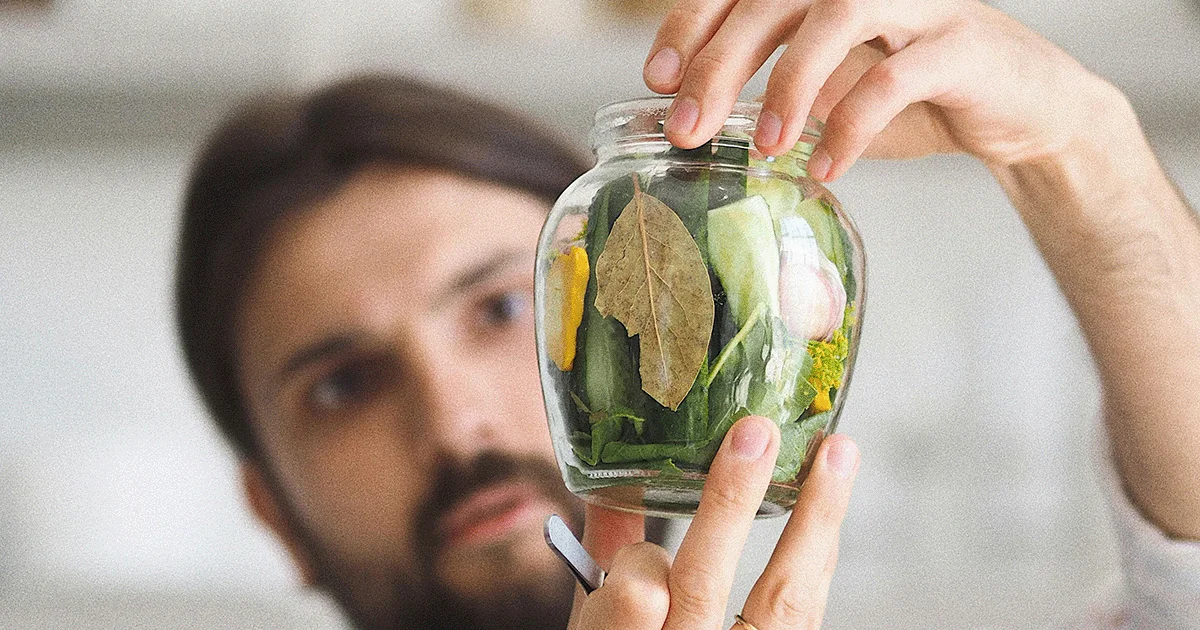Here's what we'll cover
Here's what we'll cover
The interest in plant-based diets has never been greater. With celebrities and sports stars speaking out about the beneficial health effects, many of us have been motivated to make the switch—or at least bump up our servings of fruits and vegetables.
So how do polyphenols play into all of this? Find out how these healthy chemicals may be behind lowering your risk of some of the most common chronic diseases and ways you can increase your intake.
What are polyphenols?
Polyphenols are a group of naturally occurring chemicals found in plants that have antioxidant and anti-inflammatory effects. Consuming a diet rich in all the foods we know we should be eating—fruits, vegetables, whole grains, and legumes—can help increase polyphenol levels. But you may be surprised to learn that these healthy chemicals are also found in cocoa, tea, coffee, and red wine (Guasch-Ferré, 2017).
Researchers are studying the health effects of polyphenols and how they may help prevent certain conditions, including cardiovascular disease, diabetes, and cancer.
Types of polyphenols
There are many different types of polyphenols—researchers have identified over 8,000 types! They are typically grouped into four major categories:
Flavonoids: These compounds are the largest and most studied group of polyphenols. They are found in many plants, especially fruits, and are often responsible for giving plants their bright colors. Flavonoids include quercetin and catechins (Pandey, 2009).
Phenolic acids: If you’re a regular coffee drinker, phenolic acids may make up an important percentage of your total polyphenol intake since coffee contains high levels of these compounds (Mrduljaš, 2017).
Lignans: Flaxseeds and whole grains are good sources of these polyphenols (Mrduljaš, 2017).
Stilbenes: Stilbenes make up a small proportion of polyphenols in the human diet. The only stilbene researchers consider important for human health is resveratrol, which is found in grapes and wine (Mrduljaš, 2017).
Polyphenol-rich foods
Eating a diverse, plant-based diet is a great way to bump up your polyphenol levels. Here are some food sources with the highest polyphenol content (Pérez-Jiménez, 2010):
Fruits
Black chokeberry
Black elderberry
Blueberries
Blackcurrant
Plums
Cherries
Blackberries
Strawberries
Raspberries
Prunes
Black grapes
Apples
Peaches
Vegetables
Black olives
Artichokes
Red chicory
Red onion
Green chicory
Spinach
Shallots
Yellow onions
Broccoli
Asparagus
Seeds, nuts, and beans
Flaxseed meal
Chestnuts
Hazelnuts
Pecans
Soybeans and soy products (e.g., soy flour, tempeh, soy yogurt, tofu)
Black beans
White beans
Beverages
Coffee
Black tea
Red wine
Green tea
Pure apple juice
Pure pomegranate juice
Pure blood orange juice
Pure grapefruit juice
Oils
Extra-virgin olive oil
Rapeseed oil
Cocoa products
Cocoa powder
Dark chocolate
Milk chocolate
Grains and cereals
Refined maize flour
Whole-grain rye flour
Whole-grain wheat flour
Whole-grain oat flour
Spices
Cloves
Peppermint, dried
Star anise
Mexican oregano, dried
Celery seed
Polyphenols benefits
Polyphenols have antioxidant properties. They work by neutralizing free radicals—compounds that can cause damage to your cells if levels become too high (Pandey, 2009).
Studies have consistently shown that regularly eating a diet rich in polyphenols can lower your risk for several chronic diseases, including heart disease, type 2 diabetes, and obesity. It may also prevent some cancers and neurodegenerative diseases like Alzheimer’s disease and Parkinson’s disease (Mrduljaš, 2017). Here are just a couple of studies looking at the effects of these healthy chemicals:
Heart disease
A large study of over 7000 participants examined the long-term effects of the Mediterranean diet on cardiovascular outcomes, including the rates of heart attack, stroke, and death from cardiovascular causes (Tresserra-Rimbau, 2014).
The Mediterranean diet is high in polyphenols and focuses mainly on consuming plant-based foods while limiting processed foods, table sugar, and red meat.
During the study, researchers collected information on the participants’ diets using a food questionnaire and estimated the amount of polyphenols consumed. The study found that people who ate more polyphenols were less likely to experience a heart attack, stroke, or death from cardiovascular causes than people who consumed fewer polyphenols (Tresserra-Rimbau, 2014).
In addition to antioxidant activity, polyphenols may also prevent heart disease by expanding blood vessels, reducing inflammation, and preventing plaque build-up in arteries (Mrduljaš, 2017). Polyphenols can also help lower LDL cholesterol (“bad” cholesterol) and raise HDL cholesterol (“good” cholesterol) (Covas, 2006).
Diabetes
Some studies have shown that polyphenols may reduce the risk of developing type 2 diabetes. One meta-analysis looking at four studies found that people who consumed high levels of dietary polyphenols—specifically the flavonoid type—were less likely to develop type 2 diabetes than people who consumed the lowest levels of flavonoids (Liu, 2014).
How does this work? Polyphenols inhibit enzymes that break down carbohydrates, limiting blood sugar spikes after eating (Pandey, 2009). They may also protect cells in the pancreas that make insulin, allowing your body to lower blood sugar levels effectively (Cory, 2018).
Polyphenol supplements
With the growing evidence supporting the health benefits of polyphenols, companies have begun marketing polyphenol supplements. These products often contain a blend of polyphenols from a variety of plant sources.
It's important to remember that supplements are regulated differently than medications. The FDA does not evaluate the safety or effectiveness of supplements before they are sold to the public, and companies may overstate benefits or make false claims.
It may be tempting to pop a supplement rather than load your plate with fruits and vegetables. But a supplement can't provide the added health benefits of whole foods, such as boosting your fiber intake and helping you feel full. Polyphenols may also work together with other components found in their food source to help them function in the body (Cory, 2018).
Some supplement products recommend doses that provide over 100x the polyphenol intake typically found in Western diets. While polyphenols usually offer protective effects, evidence suggests that excess levels can harm cells. Several cases of liver damage caused by high doses of polyphenols in green tea supplements have been reported. More research is needed on the safe and effective dosing of polyphenol supplements before their use can be widely recommended (Martin, 2010).
Because many of the studies looking at the effects of polyphenols evaluated dietary sources, it’s unclear if supplements can produce the same results and what the appropriate dose would be.
How to emphasize polyphenols in your diet
The research surrounding polyphenols seems to indicate what we already know—eating a diet heavily focused on plant-based options can help protect us from many of the most common chronic diseases. Heart disease, high blood pressure, and diabetes are all examples of conditions that can either be prevented or, in some cases, reversed by adopting healthy eating habits. But major changes don't have to happen overnight. Swapping some of your usual food choices with healthier alternatives (e.g., whole grain products instead of white, plant-based milks instead of dairy) is a great place to start. Small, positive changes add up and can lead to significant health benefits over time.
DISCLAIMER
If you have any medical questions or concerns, please talk to your healthcare provider. The articles on Health Guide are underpinned by peer-reviewed research and information drawn from medical societies and governmental agencies. However, they are not a substitute for professional medical advice, diagnosis, or treatment.
Cory, H., Passarelli, S., Szeto, J., Tamez, M., & Mattei, J. (2018). The role of polyphenols in human health and food systems: a mini-review. Frontiers In Nutrition , 5 , 87. doi: 10.3389/fnut.2018.00087. Retrieved from https://pubmed.ncbi.nlm.nih.gov/30298133/
Covas, M. I., Nyyssönen, K., Poulsen, H. E., Kaikkonen, J., Zunft, H. J., Kiesewetter, H., et al. (2006). The effect of polyphenols in olive oil on heart disease risk factors: a randomized trial. Annals of Internal Medicine , 145 (5), 333–341. doi: 10.7326/0003-4819-145-5-200609050-00006. Retrieved from https://pubmed.ncbi.nlm.nih.gov/16954359/
Guasch-Ferré, M., Merino, J., Sun, Q., Fitó, M., & Salas-Salvadó, J. (2017). Dietary polyphenols, mediterranean diet, prediabetes, and type 2 diabetes: a narrative review of the evidence. Oxidative Medicine and Cellular Longevity , 6723931. doi: 10.1155/2017/672393. Retrieved from https://pubmed.ncbi.nlm.nih.gov/28883903/
Liu, Y. J., Zhan, J., Liu, X. L., Wang, Y., Ji, J., & He, Q. Q. (2014). Dietary flavonoids intake and risk of type 2 diabetes: a meta-analysis of prospective cohort studies. Clinical Nutrition , 33 (1), 59–63. doi: 10.1016/j.clnu.2013.03.011. Retrieved from https://pubmed.ncbi.nlm.nih.gov/23591151/
Martin, K. R. & Appel, C. L. (2010). Polyphenols as dietary supplements: a double-edged sword. Nutrition and Dietary Supplements, 2 , 1–12. Retrieved from https://pdfs.semanticscholar.org/e0d7/4f5d1900804e0cf450865813e9ae468832a6.pdf
Mrduljaš, N., Krešić, G., & Bilušić, T. (2017). Polyphenols: food sources and health benefits. IntechOpen . doi: 10.5772/intechopen.68862. Retrieved from https://www.intechopen.com/chapters/55271
Pandey, K. B., & Rizvi, S. I. (2009). Plant polyphenols as dietary antioxidants in human health and disease. Oxidative Medicine and Cellular Longevity , 2 (5), 270–278. doi: 10.4161/oxim.2.5.9498. Retrieved from https://pubmed.ncbi.nlm.nih.gov/20716914/
Pérez-Jiménez, J., Neveu, V., Vos, F., & Scalbert, A. (2010). Identification of the 100 richest dietary sources of polyphenols: an application of the Phenol-Explorer database. European Journal of Clinical Nutrition , 64 Suppl 3 , S112–S120. doi: 10.1038/ejcn.2010.22. Retrieved from https://pubmed.ncbi.nlm.nih.gov/21045839/
Tresserra-Rimbau, A., Rimm, E. B., Medina-Remón, A., Martínez-González, M. A., de la Torre, R., Corella, D., et al. (2014). Inverse association between habitual polyphenol intake and incidence of cardiovascular events in the PREDIMED study. Nutrition, Metabolism, and Cardiovascular Diseases: NMCD , 24 (6), 639–647. doi: 10.1016/j.numecd.2013.12.014. Retrieved from https://pubmed.ncbi.nlm.nih.gov/24552647/












